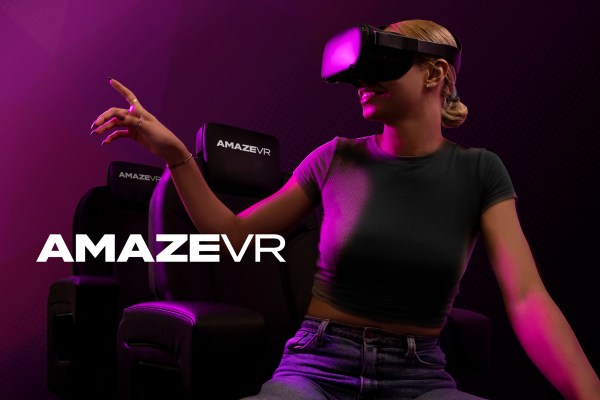AmazeVR, a virtual reality concert platform that enables users to experience their favorite artists’ VR concerts through content generation tools, announced today it has secured $15 million, which was oversubscribed within three weeks.
Partners Investment and Murex Partners co-led the new funding, with participation from Smilegate Investment, Quantum Ventures Korea, ABC Partners, Everrich Group, GS Group’s corporate venture capital firm GS Futures, We Ventures, Base Investment and Dunamu&Partners; and previous backers Mirae Asset Venture Investment, Mirae Asset Capital, Partners Investment and Timewise Investment.
AmazeVR has raised a total of $30.8 million since its inception in 2015 and plans to raise a Series B in early 2022 to drive its rapid growth, the company said. Co-CEO of AmazeVR Ernest Lee told TechCrunch that the startup would use the fresh capital for hiring additional headcount. AmazeVR began 2021 with 12 employees, but now the company has tripled its team in Hollywood and Seoul with 41 employees, Lee noted.
“We’ve been able to attract top talent from the [music, entertainment, tech and gaming] industries we touch,” Lee said. “This puts us in an ideal position to take full advantage of VR and the metaverse’s growing popularity, as we deliver breathtaking VR concerts from major artists, first to theaters, then to homes worldwide.”
In the wake of social media, fans have unprecedented access to their favorite artists but are still separated by a screen. VR concerts by AmazeVR take the fan across the screen to come face-to-face with their favorite artists to create a human connection, Lee said. Users would join as avatars, hang out with other users, and experience VR concerts together.
“Our goal is for the technology to be so good that it becomes invisible so that the fan’s memory is not that of a great VR experience, but it’s that they actually came face to face with their favorite artists in fantastical immersive environments, blurring the lines of reality,” Lee said in an interview with TechCrunch.
Headquartered in Los Angeles, with an office in Seoul, AmazeVR was founded by JB Lee, Steve Lee, Jeremy Nam, and Steven Koo, all former executives of South Korean messaging app Kakao. After Kakao’s stock market debut, the four co-founders, who wanted to try again to build a company with global impact, uprooted their lives in Seoul and moved to Silicon Valley to develop the future in VR.
Lee said that AmazeVR has been developing VR technologies since 2015 and pivoted fully into VR concerts in late 2019.
The company believed in the need for a more immersive music experience through VR concerts even before the pandemic; however, the music industry felt a bit distant and skeptical, largely from a concern over cannibalization of live concerts, their most lucrative revenue stream, Lee said.
More recently, the coronavirus pandemic has accelerated the adoption in the market, allowing AmazeVR to find product-market fit quickly. As the music industry also became more open-minded about new technologies, people began to realize that VR concerts are not live concerts but a new category of entertainment, Lee continued.
“The music industry is due for a paradigm shift, and many companies have been trying to innovate the next big thing. The pandemic only accelerated this shift as we’ve seen many endeavors spanning from live streams to virtual concerts to Fortnite shows,” Lee told TechCrunch. “All of these other solutions only provide incremental value from what already exists, and no other solution truly captures the cover value for fans – a human connection.”
AmazeVR is rolling out its first commercial VR concert with 3X Grammy winner Megan Thee Stallion to tour select AMC Theatres across the U.S. this Spring. Lee told TechCrunch that the company has already secured its second artist, a global A-list artist, and finalizing the third artist. Its first VR concert tour springs from years of R&D resulted in proprietary 9K cameras and in software that can automate complex unreal engine-based VR concert visual effects (VFX) modules and run more than 100 headsets at a time. The startup plans to scale its content creation, releasing new VR concerts weekly by 2024 to both in-theater and at-home viewers.
“You really need to experience our VR concerts to get a full grasp of how impactful they are. VR can finally blow all 2D experience out of the water. Thanks to our technology, we can evoke a real sense of presence you can’t get from a screen, the feeling that your favorite artist is right here, face to face with you,” Lee said. “This opens up a new dimension for music, one of the first new ways for artists and fans to connect since recordings appeared. We’re thrilled that investors are grasping this and are supporting us as we innovate and grow.”
